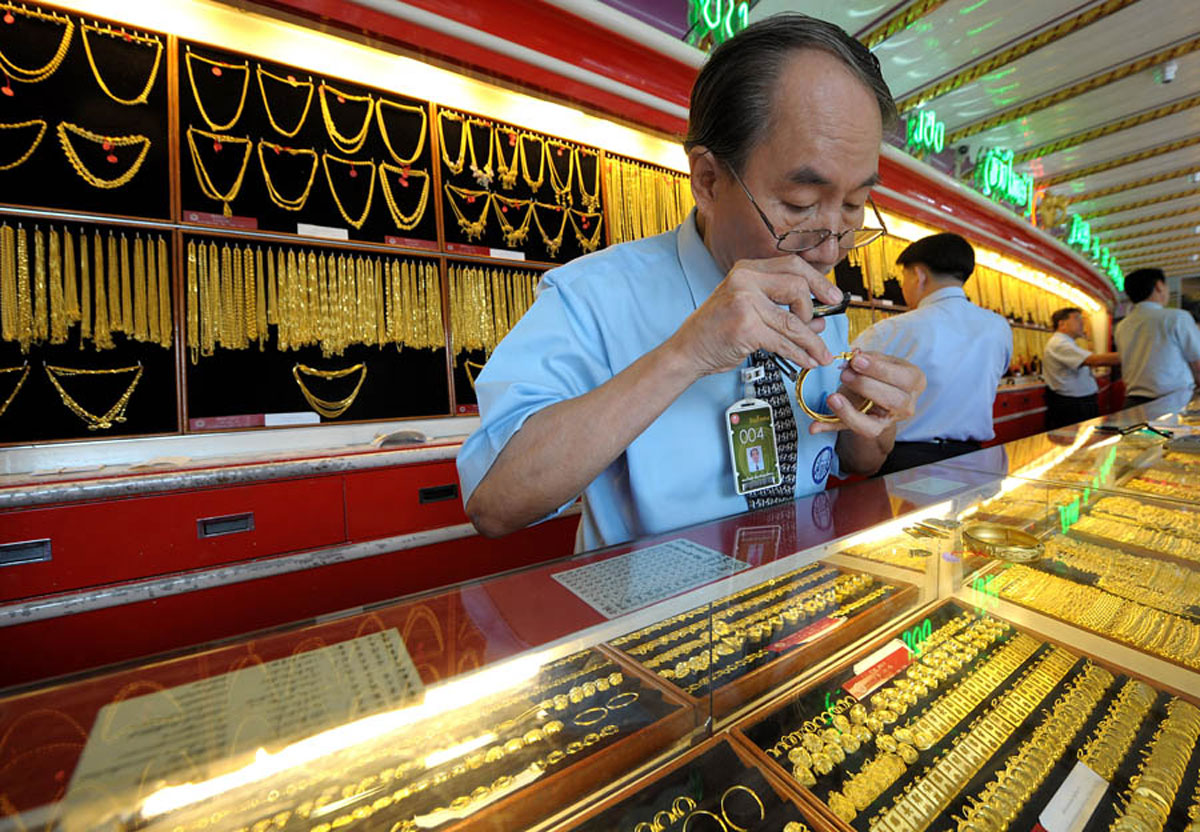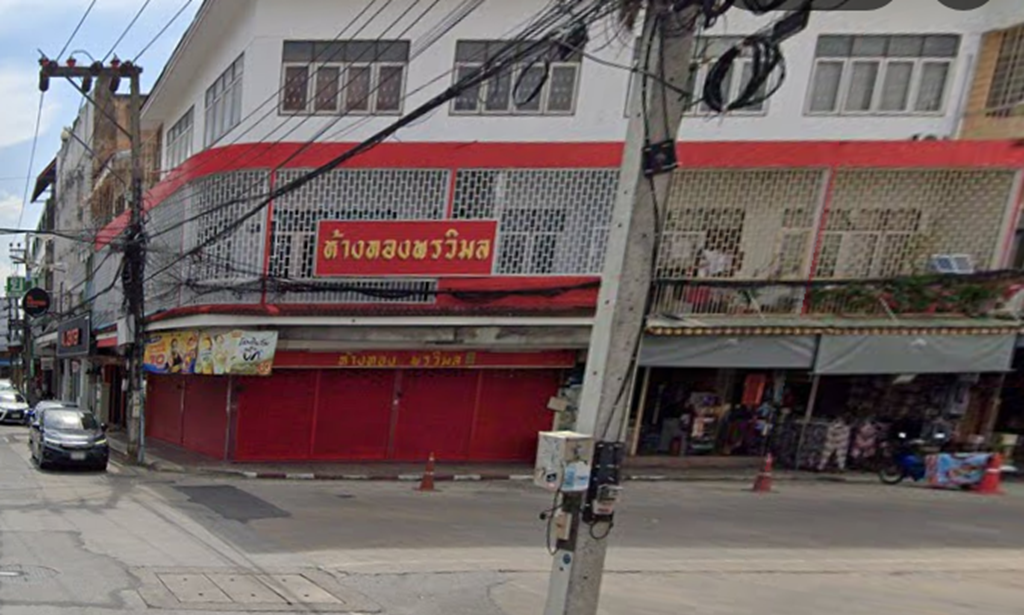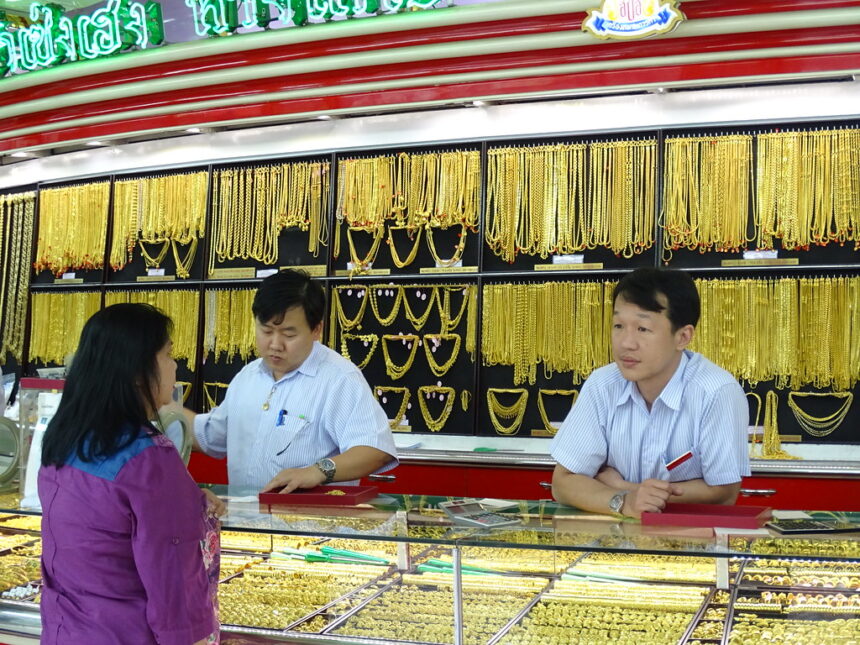CHIANG RAI – Thailand’s gold market, long seen as a symbol of wealth and a key part of family traditions, is facing one of its toughest periods. The Gold Traders Association (GTA) says gold prices have reached all-time highs, with 96.5% pure gold jewellery now selling for 50,950 THB per baht-weight in May 2025.
This is a sharp climb from the year’s low of 43,842.72 THB in early February. However, this surge has led to jewellery sales dropping by half, the steepest fall ever recorded. Small gold shops, which make up most of the market, are struggling. Many are now closing, as few customers can afford handmade jewellery at these prices.
Thailand is the third-largest gold market in Asia, after India and China. Here, gold is more than just an investment. It’s a sign of good fortune, often given as gifts during weddings and births.
Now, with prices peaking at 55,250 THB per baht-weight on 22 April 2025, fewer people can keep up this tradition. Globally, gold prices have jumped to $2,777.50 per ounce (about 93,676 THB), driven by speculation, central bank buying, and global tensions. The weaker baht, currently at 34.07 THB to the US dollar, has also made gold even more expensive for local shoppers.

Smaller gold shops are facing the biggest problems, according to the GTA. Unlike larger businesses such as YLG Bullion International, these small, often family-run stores depend on fees from making gold necklaces, bangles, and rings. These items have deep meaning in Thai culture.
With sales down by over 50%, many shop owners can no longer pay their staff. Somsak Rattanaporn, who owns a shop in Chiang Rai’s Night Bazaar, has already had to let two goldsmiths go this month. “Our main income comes from the fees for making jewellery, not just the gold itself,” he said. “When people stop buying, we have nothing left.”
The effects reach far beyond shop owners. The Thai Goldsmiths Association estimates that between 20,000 and 30,000 of the country’s 50,000–60,000 goldsmiths are now out of work. Many of these skilled workers have spent decades learning their trade.
Boonlert Siriphattharawanit, a senior adviser to the association, says some goldsmiths could move into new fields like jewellery design, but switching careers is not easy for everyone. “These people have done this job all their lives. It’s not simple to start something new,” Boonlert said.
The GTA tried to help by increasing labour fees from 500 to 800 baht per baht-weight from 1 March 2025. But this has not helped much. Customers, hit by high prices and economic worries, are selling gold items for cash instead of buying new pieces.
This has led to a flood of second-hand gold on the market, reducing demand for new jewellery even more. Gold pawning, once a solid source of income for small shops, is also losing out to larger government and private pawnshops offering better deals.

In Chiang Rai, the effects are clear. On Prasopsook Rd, once busy with shoppers buying gifts for weddings and holidays, is now quiet. More people are coming in to sell old jewellery than to buy.
Nittaya Saetang, a third-generation shop owner, says she has never seen business so bad. “People bring in old necklaces, earrings, even family pieces, just to get some money. Hardly anyone wants something new.” Her shop, like many, is close to closing.
This is happening across the country. In Bangkok’s Chinatown and small towns, small gold shops are shutting their doors. The GTA points out that these shops, which make up 80% of the market, rely heavily on local customers and don’t have easy access to buyers abroad.
Larger firms, like YLG Bullion, can survive by trading bars and financial products, but small shops do not have this option.
Despite all this, some see a small positive. The GTA says bar and coin investments have gone up by 22% compared to last year, reaching 7 tonnes in the second quarter of 2024, as more people see gold as a safe place for their money.
But this mostly helps big traders, not the small shops that rely on jewellery sales. GTA President, Jitti Tangsitpakdee, warns that if prices keep changing quickly, people will keep choosing bars over jewellery, which will keep hurting the traditional market.
The future is uncertain for Thailand’s gold industry. Gold still holds a special place in people’s hearts, but rising prices are putting huge strain on small shops and skilled workers.
As more shops close and goldsmiths look for new jobs, the GTA is calling on the government to step in with support, like help for small retailers or moves to boost local demand. Without quick action, Thailand could lose an important part of its culture and economy.
For many in Chiang Rai and beyond, rising gold prices are not just about numbers—they threaten a way of life.














